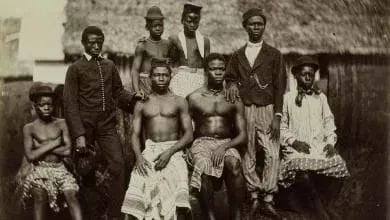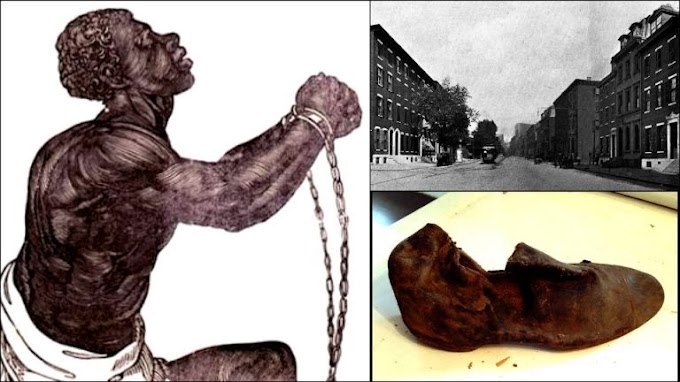Funmilayo Anikulapo-Kuti: The Deathless Legacy of Nigerian Human right Activist
Admin
June 20, 2022
Chief Funmilayo Ransome-Kuti (or Anikulapo-Kuti) was born ‘Frances Abigail Olufunmilayo Thomas’ on 25 October 1900 in Abeokuta, Nigeria. She was an educator, political campaigner, women's rights and anti-colonial activist. She is popularly known as the mother of legendary Nigerian musician/activist Fela Kuti, whose criticisms of Nigeria's military governments she fervently supported.
Funmilayo was one of the most prominent women leaders of her generation. She was among the first 6 girls to study at Abeokuta Grammar School, where she later worked as a teacher, and is known to be the first woman to drive a car in Nigeria. She soon became associated with some of the most important anti-colonial educational movements in Nigeria and Africa; and fought tirelessly to further women’s access to education and political representation using her privilege to coordinate resistance. Ransome-Kuti received the Lenin Peace Prize and was awarded membership in the Order of the Niger for her work.
She was daughter to Chief Daniel Olumeyuwa Thomas (1869–1954) and Lucretia Phyllis Omoyeni Adeosolu (1874–1956), and a descendant of Sarah Taiwo, a Yoruba woman who had been captured by slave traders in the early 19th century before eventually returning home to her family in Abeokuta. Funmilayo’s lineage and relatives include her children Beko, Olikoye, Dolapo, and Fela, as well as her grandsons Femi and Seun Kuti, Wole Soyinka (grand nephew), Yeni Kuti (granddaughter), and Yemisi Ransome-Kuti (niece), among others.
Funmilayo Ransome-Kuti founded the Abeokuta Women’s Union (AWU) in the late 1940s, one of the most impressive women’s organizations of the twentieth century (20,000 members + 100,000 supporters), which fought to protect and further the rights of women. She founded the union with Grace Eniola Soyinka, her in-law and mother of Nobel Laureate Wole Soyinka, to challenge both colonial rule and the patriarchal structure.
Their most prominent revolt was against the unfair taxes on market women in Abeokuta, which saw womens’ economic roles decline, while their taxes increased. In mid-October 1946, Funmilayo led protests of up to 10,000 women, which later forced the ruling Alake (king) to temporarily abdicate in 1949. Response to the protests from the colonial authorities was brutal. They used tear gas and inflecting beatings on the women, who were labelled as "vipers that could not be tamed".
The Abeokuta Women’s Union (AWU) members continued to protest the tax, fighting with petitions, press conferences, letters to newspapers, and demonstrations. To put more pressure on authorities, they publicly refused to pay taxes, staged vigils outside the Alake's palace, and called for an audit of financial records. In late 1947, Abeokuta authorities forbade women from organizing demonstrations, denying them the necessary permits. AWU declared their events as "picnics" and "festivals" instead, drawing up to 10,000 participants – some of which involved altercations with police. Ransome-Kuti trained women to deal with tear gas canisters thrown at them. AWU put its funds towards legal representation for arrested members.
Tensions escalated in 1948 when the Alake banned Ransome-Kuti from political meetings at the palace. AWU members soon blocked the palace entrance and refused a visiting British officer from leaving. After more demonstrations, the Alake finally responded to the women's demands. As a result of the protests, known as ‘The Abeokuta Women's Revolt’ or the ‘Egba Women's Tax Riot’, 4 women received seats on the local council, and the taxation of women was ended. Described by the media as the "Lioness of Lisabi", Funmilayo’s unwavering commitment informed her active role in Pan-African politics.
Funmilayo established a movement that crossed national borders, centered Black unity, and spanned throughout Africa and into the Diaspora. She became a very active member of the National Council of Nigeria and the Cameroons, struggling for independence. In 1953 she was one of the speakers at the Pan-African conference called by Kwame Nkrumah in the Gold Coast (now Ghana), with whom she had close ties and heavily influenced his organizing of the Ghana Women's Association. Funmilayo travelled so widely to foster African independence that the colonial government withdrew her passport in 1956. Her activism at home continued and she became one of the Nigerian representatives at the discussions in London for Nigeria's independence in 1960.
Funmilayo died on 13 April 1978 (aged 77) after receiving injuries from a military raid. On February 18, 1977, approximately 1,000 soldiers stormed and burnt down the home of her son Fela Anikulapo-Kuti. The compound, known as ‘Kalakuta Republic’, acted as an asylum and commune open to all outcasts and creative spirits. That gruesome day, Fela’s mother was thrown out of a window by the army. Following the attack, she was hospitalised in Lagos and eventually died in a coma.
On his record ‘Sorrow, Tears, & Blood’ Fela Kuti recounts the tragic event. His politics were heavily inherited from his mother and vice versa. When Fela changed his last name to Anikulapo-Kuti, Funmilayo began using it too, as a way of further supporting Yoruba culture. ‘Anikulapo’ is a Yoruba phrase meaning ‘one who has captured death and put it in their pouch’, to convey a sense of invincibility. Their legacies are deathless and closely intertwined in their fight against state sanctioned brutality. Funmilayo’s image graces the popular New Afrika Shrine in Lagos, which honors the Anikulapo-Kuti dynasty.
sources: The Guardian, UNESCO, Wikipedia
Ethel-Ruth Tawe
Kindly Share Our Post, Thank you.
Trending now

Oruko Amutorunwa (Pre-Destined Names) In Yorubaland
June 30, 2022

UNBELIEVABLE! The Tribe In Nigeria That Still Walk Naked and Why
August 03, 2022

The Owu-Ife War (1821-1828)
July 05, 2022
lastest on History, Culture & Religion
5/History/post-list
subscribe on Youtube
Lastest on Black History
5/Black History/post-list
Lastest on Places, towns and Cities
5/Places/post-list
Lastest on god's and heroes
5/gods/post-list
Lastest on Historical Facts & Records
5/Facts/post-list
Follow Us on Twitter
Footer Menu Widget
Copyright © 2022 Yorubaness | All Rights Reserved.Theme





0 Comments